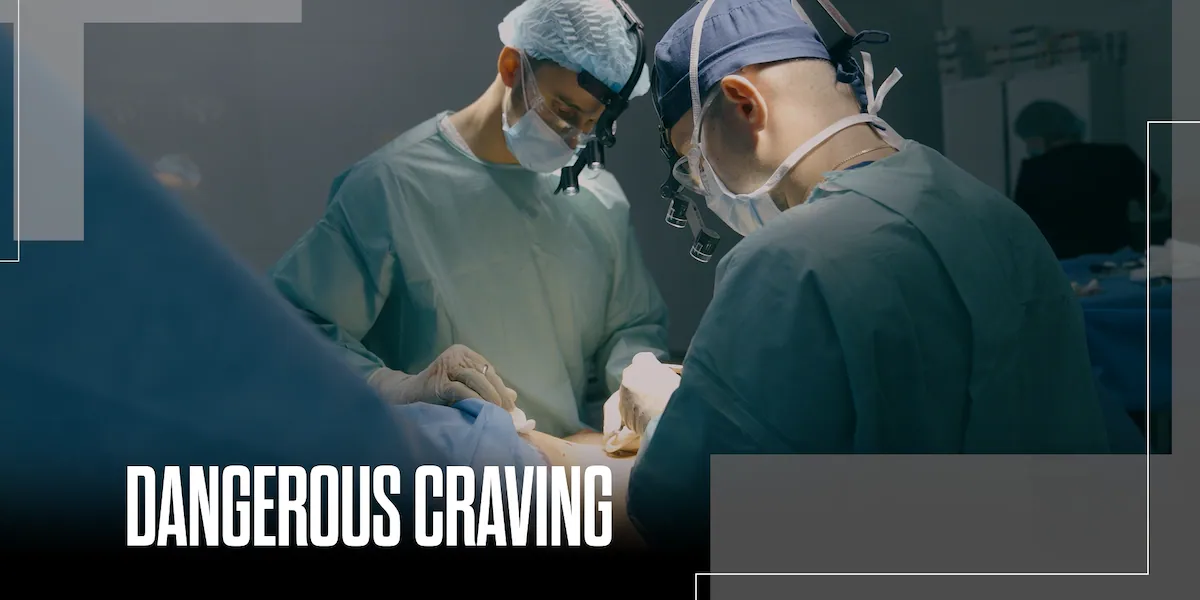
(InvestigateTV) — For the millions of Americans living with severe obesity, bariatric surgery can feel like a miracle.
The procedure is often a last resort after years of failed diets and health complications, offering not just the promise of significant weight loss, but a new lease on life. For many, it delivers a healthier body, renewed confidence, and a future free from the burdens of obesity-related diseases.
However, the surgery comes with a hidden and devastating risk for a significant number of patients. One that is rarely discussed in the surgeon’s office.
It’s a phenomenon where the compulsive need for food is replaced by a new, equally destructive dependency.
It’s called transfer addiction, and for some families, it turns a story of hope into one of heartbreak.
From a New Life to a Deadly Struggle
Amanda and Carey were more than just sisters. They were best friends. They lived next door to each other, traveled the world together, and shared a bond that felt unbreakable. When Carey decided to undergo bariatric surgery, Amanda was her biggest supporter.
The results were everything they had hoped for.
“I saw how happy she was and how she was coming out of her shell,” Amanda recalls. “She was being more social. So the surgery seemed successful. Yeah, totally successful. It did exactly what it was intended to do.”
Two years after the procedure, a shadow began to fall over Carey’s new life. Amanda started to notice a change in her sister’s drinking habits.
“I started noticing her drinking more, or the drinking being two drinks and her being so incredibly drunk,” Amanda says.
Before the surgery, Carey was not a drinker. “Six times or less a year,” Amanda estimates.
Now, alcohol was becoming a regular part of her life. The change was alarming, and Amanda believes it was a direct consequence of the surgery, or a classic case of transfer addiction.
Carey’s struggle with alcohol escalated. Despite her family’s desperate attempts to get her help, including four separate stints in rehab, the addiction’s grip was too strong. As she was preparing to enter rehab for a fifth time, Carey was found unresponsive on her kitchen floor.
In November 2018, she died of alcohol poisoning.
What is Transfer Addiction?
The Obesity Action Coalition, a patient advocacy group, defines transfer addiction as a phenomenon where individuals with a history of compulsive eating swap their addiction to food for another compulsive behavior.
While alcohol is one of the most common transfers, it can also manifest as an addiction to drugs, gambling, or even shopping.
According to studies cited by the coalition, as many as 30% of bariatric surgery patients may experience it.
The risk with alcohol is twofold.
First, there is the psychological component of replacing the comfort or coping mechanism once provided by food. Second, the surgery physically alters how the body processes alcohol. Changes to the stomach and intestines mean alcohol is absorbed into the bloodstream much more rapidly, leading to a quicker and more intense level of intoxication.
“You very quickly can get intoxicated, as well as dehydrated and malnourished,” explains Dr. Ann Rogers, president of the American Society for Metabolic and Bariatric Surgery (ASMBS).
“So we do say, you know, after surgery, we strongly encourage no alcohol use for 12 to 24 months at all.”
A Gap in Patient Education: The Medical Community’s Stance
Despite the known dangers, a formal discussion about “transfer addiction” is not a mandatory part of the pre-surgery education for accredited bariatric programs.
“To my knowledge, her doctors did not tell her this was a possibility,” Amanda says of her sister.
The standards are set by the Metabolic and Bariatric Surgery Accreditation and Quality Improvement Program (MBSAQIP). Dr. Rogers, whose organization works with the accrediting body, says the issue is complex. She notes that patients are already hit with a “firehose of information” and that it’s difficult to remember every detail.
Furthermore, she points to a lack of definitive scientific consensus on the issue.
“It’s very hard to study in humans,” Dr. Rogers says. “We don’t even know if there’s such a thing as food addiction, per se. So while you can go without cigarettes or alcohol, you can’t go without food. So we can’t study what it’s like to have people quit eating cold turkey. So that just makes it impossible to study it as a form of addiction.”
While some in the medical community may debate the terminology, they do acknowledge the increased risk of alcohol abuse.
Dr. Jessica Hamilton, a clinical psychologist who evaluates patients before surgery, says while she doesn’t specifically use the term “transfer addiction,” she is direct about the potential for developing a problem with alcohol.
“There are correlations and there is some evidence to talk about the risk of alcohol use increasing after surgery,” she says.
The Voices of Survivors
For patients who have lived through it, the debate over data and terminology is frustrating.
Anna and Marianne are two members of a Facebook group called “Transfer Addiction After Weight Loss Surgery,” a community of nearly 13,000 people grappling with this very issue.
Anna, who developed an alcohol addiction after her surgery in 2020, never had a problem with drinking before.
“I was always the designated driver for my friends,” she says.
Marianne, who struggled with alcohol before her 1979 surgery, says her addiction became much worse afterward. When asked what she thinks about the argument that there isn’t enough research to prove transfer addiction is a real issue, her response is blunt.
“Hogwash,” she says. “I went through years and years of going to physicians and going to psychiatrists and going to therapists for help.”
A Call for Conversation and Change
The gap between the lived experiences of thousands of patients and the formal standards of care is one that Amanda is now fighting to close. She hopes that by sharing her sister’s story, she can spark a conversation that leads to real change.
When asked what she would say to those who argue that making this education mandatory isn’t necessary, her grief and anger are palpable.
“I would tell them they can have my grief and they can have my pain and they can have my anger,” she says.



